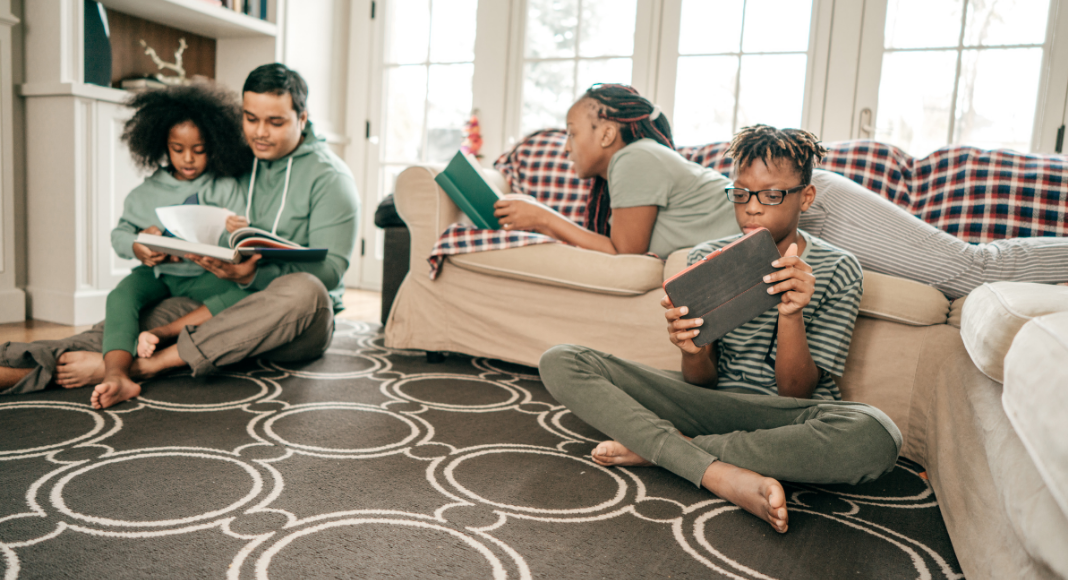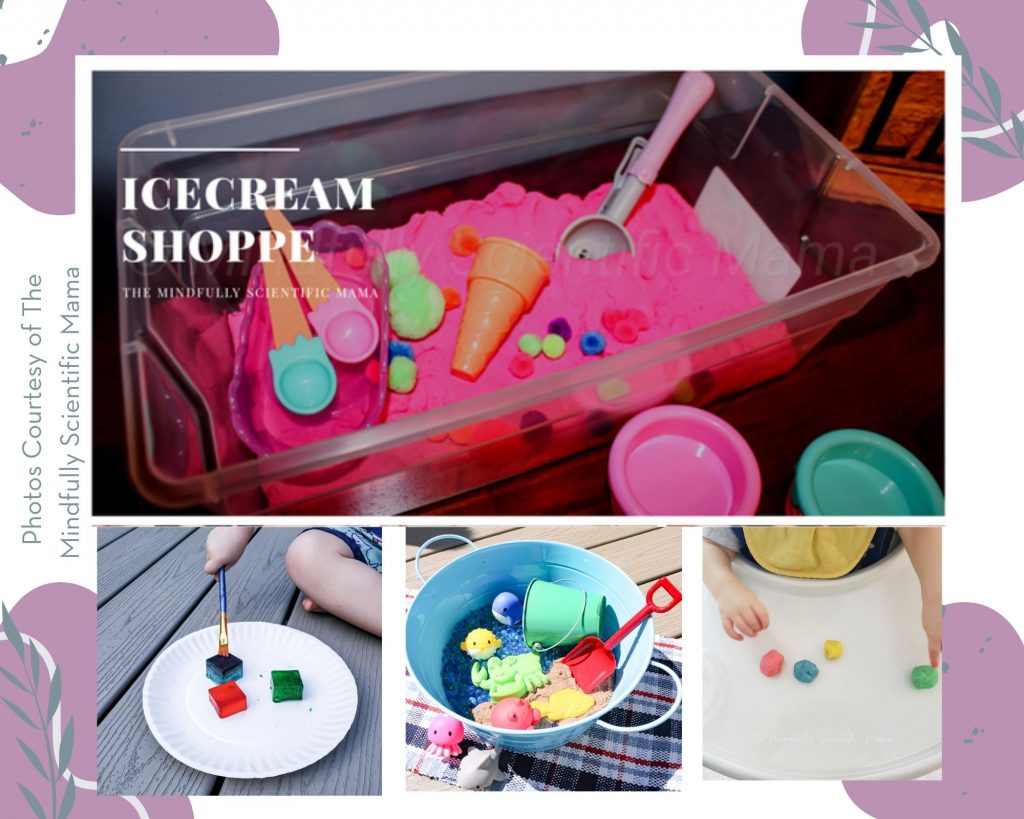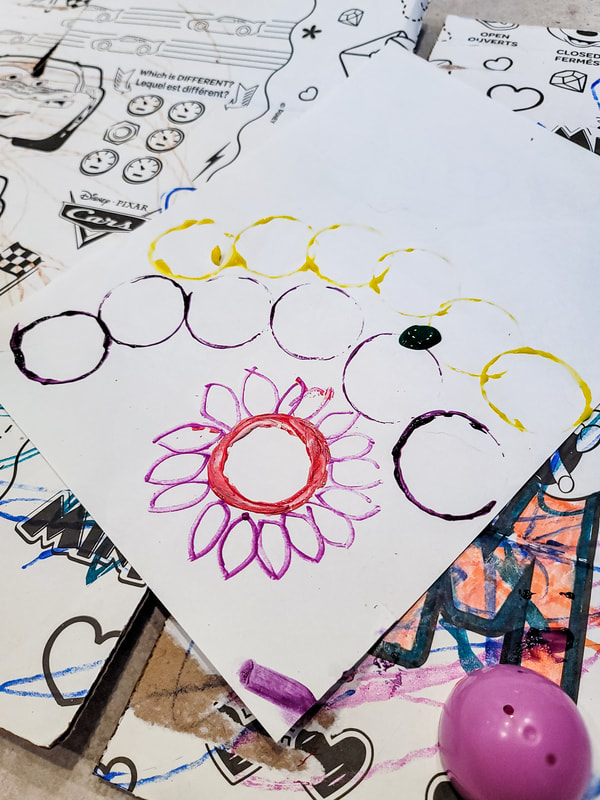 The winter months are hard, especially when many indoor activities are unavailable. But being stuck inside doesn’t end with spring. In comes the rainy, still somewhat chilly season. And then there is quarantining. All in all, we are spending much more time indoors with our little ones. Here are some strategies to keep your sanity when leaving the house isn’t an option.
The winter months are hard, especially when many indoor activities are unavailable. But being stuck inside doesn’t end with spring. In comes the rainy, still somewhat chilly season. And then there is quarantining. All in all, we are spending much more time indoors with our little ones. Here are some strategies to keep your sanity when leaving the house isn’t an option.
1. Keep a schedule to the extent that works for your family.
Not every family thrives with a rigid routine, but keeping some sort of schedule is helpful for most of us (even if it is just a sequence you follow at rough time intervals). Plus, it can help keep the sense of normalcy, especially if the entire family is stuck at home due to quarantine.
2. Cut yourself a break.
Being stuck inside due to cold temperatures, illness, quarantining, or bad weather is HARD. You are human. Cut yourself a break and practice plenty of self-care if you are frustrated or otherwise struggling.
3. Get outside as much as you can.
Even if it is for a few minutes, get some fresh air. The change of scenery and fresh air is sure to break up the monotony and provide a reset for you and the kids.
Here are some activities for your little ones (many of these work great for older kids, too!).
1. Sensory Bins/Activities
Sensory bins and activities are one of my favorite ways to keep my kid busy on cold or rainy days. They can be great for older babies, toddlers, preschoolers, and even some elementary-age students. Yes, they can be messy, but that is kind of the point, isn’t it?! If you can get past the cleanup element (and as someone who hates mess, I encourage you to do so), here are some great sensory activities your kid will love!
- How to Create A Sensory Bin
- Pretend Snow
- Salt Dough
- Easy Sensory Shakers
- Cabin Fever Fun (includes sensory activities and other great things to do with your toddler or preschooler)
- Ice Cube Painting
- Baking (baking, cookie/cake decorating, etc., are also sensory activities!)


2. Obstacle Courses and Scavenger Hunts
Obstacle courses and scavenger hunts combine movement and using your brain, making them perfect for little ones cooped up inside. You can use items around the house to build your obstacle course (think pillows, couch cushions, chairs, tables, boxes, and blankets), though I’ve also purchased gross motor sensory play equipment as well. Some of my favorite obstacle course tips can be found here. You can easily make up your own (hunt for toys, office essentials, food items, clothing, and more) for the scavenger hunt, or check out Pinterest for tons of ready-made options!
3. Arts & Crafts
Arts and crafts are probably the first thing that pops into many people’s minds when considering inside kids’ activities, and there is no shortage of options available online. Check out these great options (we also have Pinterest boards with tons more!).
- Easy Plastic Easter Egg Crafts (these crafts are not Easter specific and can be done any time of the year)
- Footprint Flower Art
- Cottonball Sheep Craft
- Spring Coloring Pages
- Spring Cleaning Crafts
- Rainy Day Crafts


Photo Credit: The Mindfully Scientific Mama
4. Reading
Literacy skills are essential academic prerequisites, so why not foster them when stuck inside? Reading to your child has numerous cognitive and educational benefits, and it is fun at the same time. Curl up with some good books and help your child’s imagination fly.
Check out this post for more on unlocking your child’s love of reading with a library card.
5. Movement Time
Finding ways to move our bodies indoors has become essential for my entire family during the winter months. Whether it is a workout program I can do with my child or a dancing session in the living room, keeping active is a sanity saver for us. There are numerous family yoga programs, too, if that is more your speed.
6. Screen time because, let’s be honest, we all do it!
Bear with me here; I promise I have a point! I’m not saying plop your kid in front of the TV all day for days on end (though seriously, no shame if you have, no matter what the studies say, because again, life right now is HARD). But, keeping it real here, screen time can be a valuable tool for a parent ready to pull their hair out. Screen time in our home isn’t for my son (though he thinks it is, and we make efforts to select programming with data supporting educational value like Sesame Street and Daniel Tiger).
Instead, it is a tool to allow me to get dinner cooked, go to the bathroom for a moment, or take a deep breath. Why is this on the list? Because as parents, we can be critical of using screen time or doing things that enable us to function if we feel (<<< keyword) they are taboo. Parenting is hard enough, and I can always remind myself that sometimes it is okay to do things like turn on the TV to save my sanity. If I need the reminder, I imagine you might as well. Remember that for every study on the negative impacts of screen time (which, I should note, do not find that screen time in and of itself is bad), there are others about the impacts of parental mental health and stress on child wellness*.
Should you ideally limit screen time to recommendations? Sure. Should you be overly critical of yourself if you have provided more than that? Nope! Key point? Finding a balance between strategies to tend to your mental health with strategies to promote positive child development is essential.
You can learn more about the evidence surrounding screen time from the American Academy of Pediatrics. By the way, even they acknowledge increased use of screens during the pandemic.
What else can you do to stay busy inside with your toddler or preschooler? Check out our Pinterest account for tons of great ideas from around the web!
*Please note this statement does not mean that the use of screen time is associated with parental wellbeing/mental health or that there are downstream positives for children. Effects of parental mental health and stress on child wellness, in this statement, are separate from any risks or benefits associated with screen time.




















